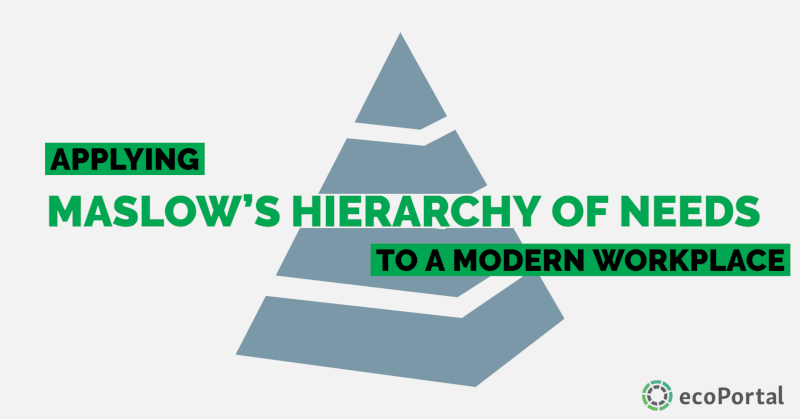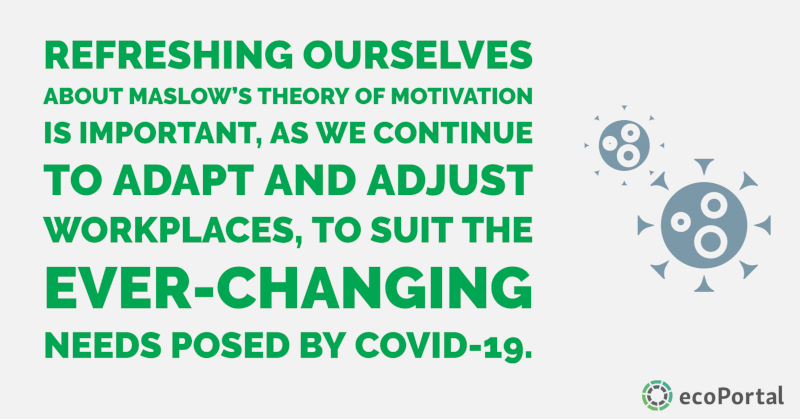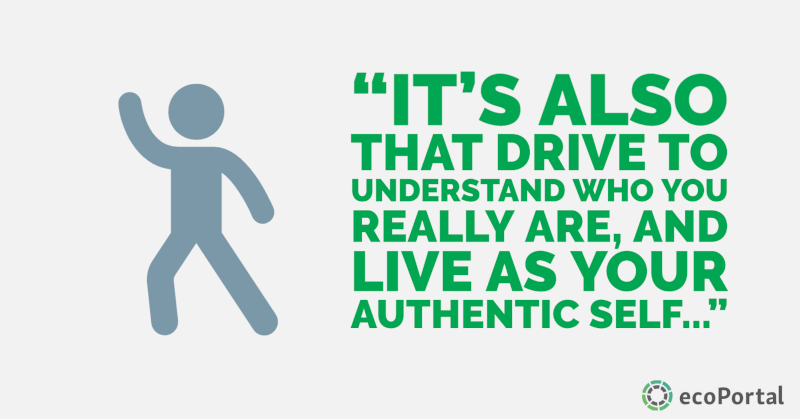
How can we find motivation?
Motivation is a powerful energy that drives how we work, the vigour with which we approach our job and a greater sense of purpose gleaned from what we do. Motivation is, in short, the incentive we need to wake up in the morning, get dressed and head to work.
Abraham Maslow was a psychologist, whose research in the early to mid-20th century was pivotal in our understanding of human motivation. He's commonly cited as being one of the forefathers of modern psychology, who emphasised the value of understanding the inherent positive qualities of an individual, beyond a collection of symptoms. He also famously introduced the concept of self-actualisation, shedding light on our innate need for fulfilment in life.
Maslow’s hierarchy of needs is perhaps his most well-known work and a pivotal theory of motivation. Theories of motivation are hotly contested with a variety to choose from. If you recall your Business 101 days, names such as Hertzberg (2-Factor theory), Taylor (Fordism motivation), or McGregor (X & Y theory) will likely ring a bell. While each theory provides a valuable insight into human behaviour in the workplace, Maslow’s is arguably the most well-known and continues to be applicable to workplaces in the roaring 2020s.
Indeed, the landscape of work and the office has been turned upside down, thanks to the paradigm-shift-like changes brought about by the pandemic. Refreshing ourselves about Maslow’s theory of motivation is important, as we continue to adapt and adjust workplaces, to suit the ever-changing needs posed by Covid-19.

An interesting note: the pyramid we know and love today - and usually associated with Maslow’s theory - was not actually part of his original work. The hierarchical structure of each need is less rigid; Maslow himself emphasised how his identified needs are fluid and an individual can move back and forth between each stage.
What is clear about Maslow’s hierarchy, however, is that if the basic lower-tier needs are not fulfilled, the person will struggle to move to higher levels - and can go backwards when the primary needs are threatened.
For example, during a recession according to the pyramid, an employee will default back to their stability needs when their job security is threatened. This rings true: if you’re stressed about finances, or job security, higher elements such as a sense of purpose from your role are more difficult to motivate you. We instinctively focus on each need in adjacent, ascending order.
The basic concept of Maslow’s hierarchy is that there are five critical needs that must be met, in order to experience a sense of purpose and motivation.
- 1. Physiological needs
The first set of needs are the most basic. We all need food, water, and shelter to survive. In the modern workplace, this looks like basic pay (reflective of the role), a designated eating area, clean toilets, and water stations positioned in the office.
Living in first-world countries, we are fortunate enough that our physiological needs are relatively easy to meet in the modern workplace. In New Zealand, we have access to clean water, and in the working world, most have access to food.
- 2. Security needs
The second tier of needs focuses on our need to feel psychologically and physically safe to feel motivated. In the modern workplace, these needs look like job security, job stability, and physical safety.
A worker deeply concerned or worried about their own safety will be far less likely to be motivated and engaged in their work. In the health and safety industry, this is a valuable reminder about how productivity is affected when the most basic needs are not met.
For example, workers on oil rigs report a high level of stress and lack of job satisfaction, largely attributed to their dangerous working conditions. With these kinds of internal emotions, it’s harder for them to feel a sense of purpose and fulfilment.
- 3. Social needs
We all have a deep, intrinsic need to belong. With any social situation, feeling as though you belong, you’re supported and valued socially and that you’re comfortable being who you are is critical to mental wellbeing.
Our social needs can often be overlooked, or seen as of lesser importance to motivation and wellbeing - but are the needs most critically at risk in the Western world. Feelings of loneliness and isolation have been heightened during the pandemic, prompting researchers to coin the term, “Loneliness Pandemic”.
Unsettling figures have highlighted the extent of how loneliness affects people. Physical isolation from others makes us feel more disconnected. When you’re working from home, coupled with frequent social media scrolls, a tangible sense of community dissipates. It’s no secret that loneliness is incredibly dangerous for wellbeing - increasing the risk of cognitive decline, premature ageing, and major health problems.
In the workplace, promoting a culture where friendships can blossom, is essential for the mental wellbeing and motivation of your workforce. It's important that your organisational culture celebrates inclusivity and welcomes all newcomers with open arms.
4. Esteem needs
The fourth tier of needs revolve around developing healthy self-esteem, through cultivating self-respect and a sense of self-belief.
We all have a need for genuine appreciation and respect from our peers. In the workplace, this is clear: feedback is valuable, and congratulating a job well done, works wonders for motivation. Furthermore, feeling respected and valued inherently as a person is critical for the development of healthy self-esteem.
Issues such as imposter syndrome often crop up in the workplace, speared on by low self-esteem, and the inherent belief that you’re not good enough. Providing adequate feedback with praise to solidify an individual’s belief that they deserve to be in the position they’re in, is a first step in combating these problems.
The final and potentially most transformative need, at the pinnacle of Maslow’ hierarchy, is our need for self-actualisation.
Self-actualisation, or deeper fulfilment, transcends the prior needs. To quote Maslow himself, self-actualisation is “becoming everything one is capable of becoming.”
This is our need for a greater purpose in what we do, a sense of achievement and accomplishment within our work, and the connection we have to greater meaning, beyond ourselves. It’s also that drive to understand who you really are, and live as your authentic self - a need that often takes years to fulfil.

A useful way to connect employees with feeling self-actualised is to impress upon them the value of the work they’re doing. As an individual, understanding yourself is the first step to self-actualisation - what personally motivates you? How do you cope with stress?
Another aspect of self-actualisation is what Maslow notes as ‘peak experiences'. These are the rare moments of highest happiness and fulfilment, associated with a sense of wonder and awe that we have in our lifetimes. By reaching a sense of self-actualisation, we will have more frequent peak experiences - and essentially, life becomes more meaningful.
If you’re struggling to self-actualise, try engaging in some self-reflection. Often, taking a step back to look at the bigger picture is immensely helpful in figuring out what we want to get out of life.
Final Words:
Revisiting the classic theory of motivation is a great reminder about human behaviour and how people stay motivated. Although Maslow’s theory is not the be-all-end-all of motivation research, it is a useful explanation of how not meeting our basic needs can offset productivity further down the line.
Prioritising our needs is the key behind a motivated workforce: it’s unhelpful to try and promote workplace football if basic day-to-day safety needs have not yet been met. It’s worthwhile reflecting on the more basic needs in your workplace, and examining whether any have been overlooked.
The ideal outcome? Everyone achieves a sense of self-actualisation.
Want to know more about how to create a better health and safety culture? View ecoPortal smarter safety videos. ecoPortal health and safety software can also help your business. Try a demo or get in touch with the team at ecoPortal.







